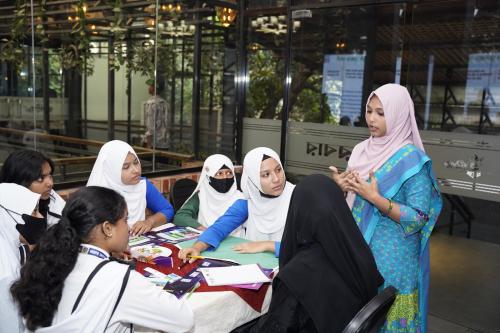The Obama administration is proving what a difference a determined, constructive and plain smart strategy on human rights at the United Nations can make.
Just three years ago, the United States absented itself from the world’s principal diplomatic forum for human rights because it felt it couldn’t get its way on every issue. As a result, it ceded important ground to the very governments it criticized for their human rights practices, leaving our closest allies, including Israel, and human rights defenders around the world exposed.
Now, after two years of active engagement as a member of the Human Rights Council, the United States can show real results that prove that staying and fighting for our core values is worth the effort, as I noted in my testimony to the House Foreign Affairs Committee this month.
The just-concluded session of the Council, which meets three times a year in Geneva, broke new ground in several ways. For the first time, the Council created a special rapporteur to monitor human rights violations in Iran, a situation, as Secretary General Ban-ki Moon informed the Council, which included “reports of increased executions, amputations, arbitrary arrest and detention, unfair trials, and possible torture and ill-treatment of human rights activists, lawyers, journalists and opposition activists.” These independent experts carry out unheralded work in unveiling human rights abuses, defending victims and creating pressure for reforms with proven results.
The Council also dropped the longstanding though much-criticized “defamation of religions” concept, which in years past raised concerns of encroachment on freedom of expression. Instead, Pakistan, on behalf of the Organization of Islamic Conference, tabled a consensus resolution that promotes combating intolerance, discrimination, incitement to violence, and violence against persons based on religion or belief, language consistent with U.S. standards, and does not single out Islam or any other religion by name.
The Council also unanimously agreed to dispatch a commission of inquiry to investigate human rights violations committed by the Gaddafi regime in Libya and recommended Libya be removed from the body, an unprecedented step the General Assembly took just days later.
In each case, the United States led the way, building cross-regional coalitions in Geneva, deploying top diplomats to capitals, and sticking to principles. This Council session in Geneva brought a string of other noteworthy outcomes:
-
A commission of inquiry was created to investigate serious human rights crimes against innocent civilians in Cote d’Ivoire where a dramatic standoff is underway between the legitimate winner of elections and the losing incumbent who refuses to step down.
-
Independent experts who monitor and report on human rights abuses in Burma and North Korea were extended, giving victims and defenders in those countries a critical voice on the international stage.
-
Other mandates to examine situations of torture, extrajudicial executions, human rights defenders, violence against women and freedom of expression, among others, were all extended for another three years.
-
A leading human rights activist from Kenya was appointed as the first special rapporteur on freedom of assembly, a position the United States campaigned for and won last year in light of intensifying pressures against civil society around the world.
-
And a breakthrough joint statement defending the rights of LGBT persons garnered 85 signatories from every region and incorporated new language calling on states to end criminal sanctions based on LGBT status.
These are just some of the tangible results that steadfast and principled U.S. leadership can bring to even the thorniest issues on the international political agenda.
Naysayers will jump in at this point to cite the ongoing bias against Israel at the Council, a situation the United States vigorously opposes, often alone. Or they will complain that the five-year review of the Council so far has led to meager proposals for reform, failing to mention the defeat of numerous efforts to weaken the body. And why was Libya elected to the Council in the first place? In the quickly forgotten recent era of constructive engagement with Tripoli, it was not all that surprising it got elected in the face of no other competition on the African slate. Where there has been competition, states with bad human rights records have been defeated, including Iran, Venezuela, Belarus, Azerbaijan and Sri Lanka. And with Libya’s expulsion, a new precedent has been set that egregious violators will be removed.
Looking ahead, as the United States begins its campaign for a second term on the Council, critics in Congress are demanding that we not be represented for fear our presence would lend credibility to a dysfunctional body. They even go so far to say the Council is so bad that we should withhold our mandatory dues to the entire United Nations. The reality is quite different – by staying in the game, the United States can make a difference, as the results noted above indicate. This is one area where the Obama doctrine of principled and pragmatic engagement has proven its mettle.
The Brookings Institution is committed to quality, independence, and impact.
We are supported by a diverse array of funders. In line with our values and policies, each Brookings publication represents the sole views of its author(s).



Commentary
Why the U.S. Must Stay on the UN Human Rights Council
April 1, 2011